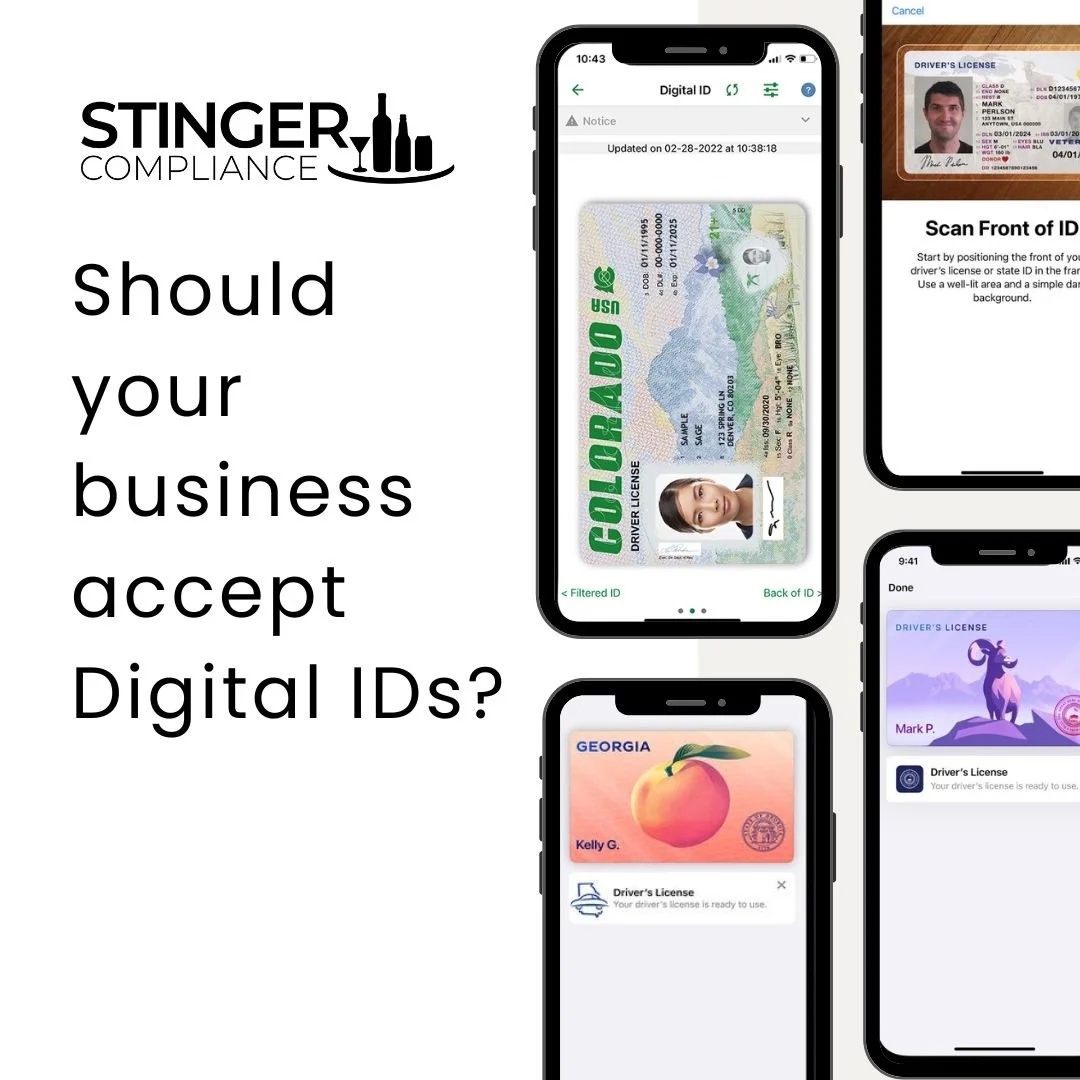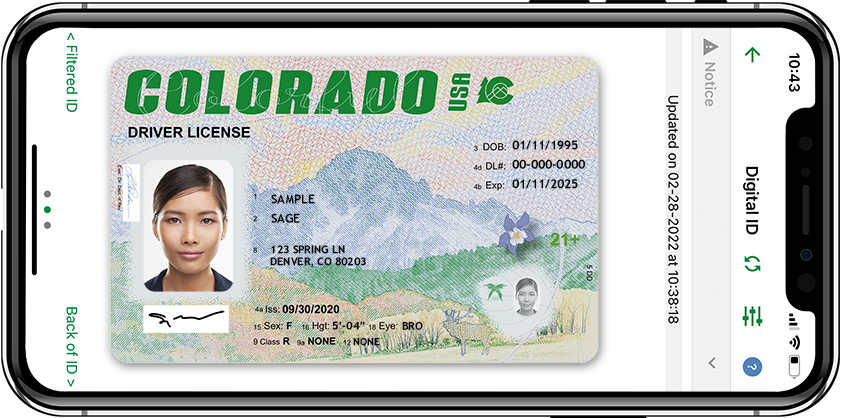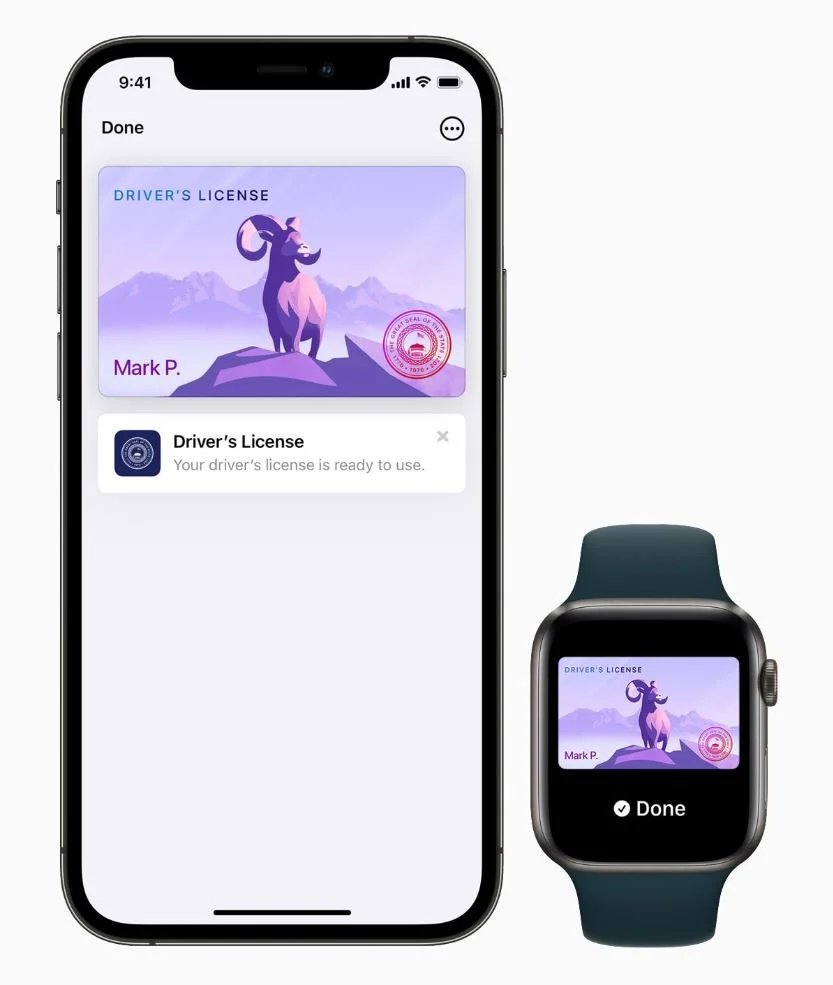Should Your Business Accept Digital IDs?
Imagine this scenario. Your bartender asks for identification to verify a customer’s age and is presented with a Digital ID. They aren’t sure if they should accept the Digital ID as they have not been trained to verify if the ID is authentic or counterfeit. Is this against company policy? Will they get in trouble if they accept the Digital ID? What if they sell alcohol to a minor?
In the end, they turn the customer away out of fear. The business loses out on sales, the bartender loses out on potential tips, and the customer walks away frustrated and leaves a nasty review. This is a lose-lose-lose situation.
To prevent this from happening to you as a business owner, it’s essential that you are aware of your state’s laws regarding digital identification and how to accept it at your place of business.
In this blog post, we will define what Digital ID is and which states have a Digital ID program, as well as where Digital ID is accepted. Finally, we will answer the most important question (that probably brought you to this post in the first place): should you accept Digital IDs at your restaurant, bar, or storefront?
What is a Digital ID?
First, a little context. The Department of Homeland Security sponsors “Next Generation Identity: Mobile Driver’s License,” a national effort to modernize identification in the United States. The mDL effort was launched in 2020 after the passing of the REAL ID Modernization Act. Gradually, many states have bought into the idea of digital identification and have allowed their residents to use a digital copy of their state ID or driver’s license.
According to the Transportation Security Administration (TSA), “A digital ID is an electronic representation of personally identifying information that may be used to verify the identity of a person. A mobile driver's license is a type of digital ID…A digital ID may also be issued by a non-governmental entity based on information derived from governmental or non-governmental sources.”
An example of a Mobile ID would be an electronic version of a State-Issued driver’s license. An example of a Digital ID could be a Mobile ID OR the Delta Airlines application which uses a State-Issued ID to verify an individual’s identity. Of course, it’s doubtful that anybody will try to use their airline application to purchase an alcoholic beverage.
For the purposes of this blog post, we’ll refer to a Digital ID as a digital copy of a State-Issued ID or Driver’s License used for the purpose of verifying someone’s age.
Which States Are Accepting Digital IDs?
Let’s be honest, Digital IDs are very new and many states have yet to accept them. There is a hesitancy to adopt with any new technology, especially one as sensitive as identity verification. For the states that have implemented Digital IDs, they’re still not accepted everywhere. It’s a rapidly evolving space. All business owners in alcohol or tobacco sales must be fully informed and prepare their employees to accept or deny Digital IDs at the point of purchase.
Courtesy of dds.georgia.gov
These states have a Digital ID program:
Louisiana - Only For Specific Uses
These states are in the process of implementing a Digital ID program:
More states are announcing plans to adopt Digital IDs in the near future, but the implementation process is lengthy. Also, there are many state legislatures that oppose this “modernization” of personal identification due to potential risk to their residents if any system were to abuse or mishandle the vast amounts of personal information transferred when using Digital IDs.
How To Get a Digital ID
The first step to getting a Digital ID is to get a physical ID using your state’s standard process. Once you have a physical ID, you can create a Digital ID using your smartphone. There are two methods used across the states using Digital IDs:
A State Sponsored App:
Courtesy of Colorado.gov
Many states, like Colorado and Utah, have mobile applications created specifically for the use of a Digital ID. The applications are available for download and use by residents, and enrollment instructions are listed on the state’s website.
Smartphone Wallet:
Courtesy of Apple
Some states use the wallet functionality available in most popular smartphones. Instructions to enroll in a wallet Digital ID are simple and easy. If you live in any of the states listed below, check them out today!
Apple Wallet (Maryland, Georgia, Colorado, and Arizona)
Google Wallet (Maryland, Georgia, Colorado, and Arizona)
Samsung Wallet (Arizona only at the moment)
Where are Digital IDs Accepted?
The question of where Digital IDs are accepted isn’t straightforward. Some states explicitly list where Digital IDs are accepted (like Iowa), while others give general guidelines. Here’s what we know:
Travel via Airports – The TSA lists which airports accept Digital IDs.
Law Enforcement Agencies – Most officers won’t accept Digital IDs. Every law enforcement agency’s website states, without fail, that residents MUST carry a physical copy of their license. The Digital ID is only considered a “companion” to the physical ID. That being said, it’s not unheard of for officers to accept Digital IDs in the states that support this type of identification.
Businesses that Sell Age-Restricted Products – Companies across the states that use Digital IDs have the right to refuse service or sales to individuals who present only a Digital ID. This is partly due to the lack of training around Digital IDs and the nascency of this technology.
Also, while most Digital IDs are digital copies of a physical ID, meaning they can be viewed by a sales associate, others are encrypted. For example, in Florida, businesses must have a “Verifier” application to accept a Florida Digital ID.
At the moment, Digital IDs are only accepted at businesses in the issuing state. For example, Georgia Digital IDs are only accepted at Georgia businesses.
Should You Accept Digital IDs?
Now for the question to which you want an answer: should you accept Digital IDs at your place of business? Of course, the answer is…it depends.
Based on the state’s format of Digital IDs, it may be more difficult to accept them at the point of purchase. As we mentioned before, businesses in Florida need a companion application to verify the Digital ID of the customer. Most states are trying to make it easy and accessible for businesses to confidently accept Digital IDs, though there is a long journey ahead regarding adoption and training.
Here’s what we recommend:
Understand your state’s Digital ID program, if they have one.
Decide if your business will or will not accept Digital IDs.
Decide if your business will accept out-of-state Digital IDs.
If you will accept Digital IDs, train your employees on the process to accept them at the point of purchase.
Continually update yourself on the ever-evolving space of Digital IDs to keep your employees trained and compliant.
Use regular private Stings (with companies like Stinger Compliance) to ensure your staff is compliant in checking physical IDs and Digital IDs alike.
We hope this was helpful to you and brought clarity on the topic of Digital IDs! To learn more about Stinger Compliance and how private Stings can benefit your business, check out our website. It’s easy to create an account and book your first Sting – become a client today!




